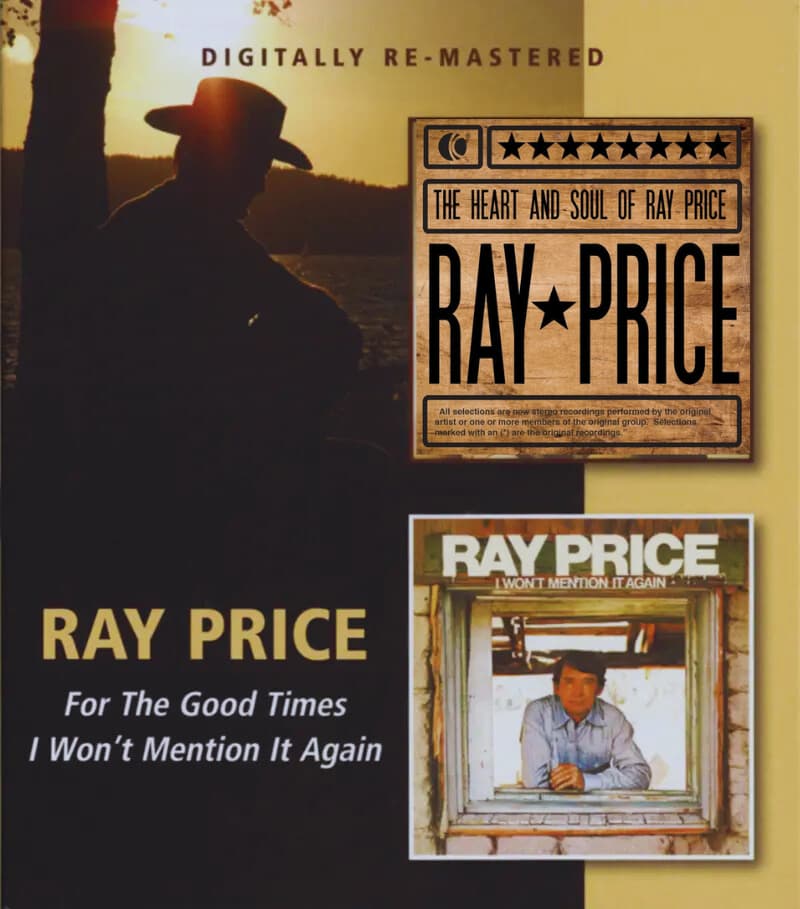
The quiet tragedy of a man clinging to the last threads of a broken love.
Some songs don’t just tell a story; they become the soundtrack to a moment in time, a memory etched so deeply that hearing the first few notes can transport you back decades. For a certain generation, Ray Price’s “I Won’t Mention It Again” is one such song, a beautiful, devastating ode to stoic heartbreak that perfectly captured the spirit of the early 1970s. Released in 1971, this powerful ballad wasn’t just a hit; it was a cultural touchstone that cemented Price’s status as a master of the “Nashville Sound.”
The song’s success was immediate and undeniable. It soared to the top of the country charts, becoming Ray Price’s sixth number-one single. It held that coveted spot for three weeks and lingered on the chart for a total of seventeen, a testament to its widespread and enduring appeal. But its influence wasn’t confined to country radio. The song also crossed over, reaching number 42 on the U.S. Billboard Hot 100 and an impressive number 4 on the Easy Listening chart, proving that its melancholic message of quiet sorrow resonated with listeners far beyond the honky-tonks and rural airwaves. The single was the title track of the album of the same name, which itself was a critical and commercial triumph. The I Won’t Mention It Again album debuted on the Billboard country album chart in June 1971, where it dominated the number-one position for five weeks and went on to win the Country Music Association Award for Album of the Year. It was a remarkable period for Price, as the album also featured another smash hit, “I’d Rather Be Sorry,” which peaked at number two.
The genius of “I Won’t Mention It Again” lies in its lyrical simplicity and the profound emotion it conveys. Written by the talented duo of Cameron “Cam” Mullins and Carolyn Jean Yates, the song is a masterclass in subtlety and emotional restraint. It tells the story of a man who knows his relationship is over. He’s home, face-to-face with the woman he loves, but the love is gone. The unspoken truth hangs in the air like a thick fog. Instead of lashing out, crying, or pleading, the narrator makes a promise to himself and his former love: he won’t mention their shared past again. He’ll walk away quietly, take the memories, and swallow the pain, all for the sake of a clean break. The lyrics, with their heart-wrenching finality, capture a uniquely adult kind of grief—the kind that comes not with a shout, but with a silent, heavy sigh.
Ray Price’s delivery, however, is what elevates this song from a simple country ballad to an unforgettable piece of musical art. By this point in his career, Price had already evolved from a hard-country shuffler into a smooth, sophisticated crooner, leading the charge of the lush “Nashville Sound.” His rich baritone, dripping with a resigned melancholy, perfectly embodies the narrator’s quiet desperation. The sweeping strings and gentle piano swells that were the hallmarks of this new sound provide a luxurious, heartbreaking backdrop for his performance. It’s a performance that doesn’t just sing the words; it lives the quiet tragedy. The arrangement feels like a warm embrace, a final, beautiful goodbye. For those who remember a time when country music was filled with such elegant and deeply personal ballads, hearing Price’s voice again is like revisiting an old, trusted friend—one who knows your deepest sorrows and offers comfort without ever needing you to say a word. It’s a moment of reflection on a past era, and a reminder that sometimes, the most profound emotions are found not in what is said, but in what is left unsaid.